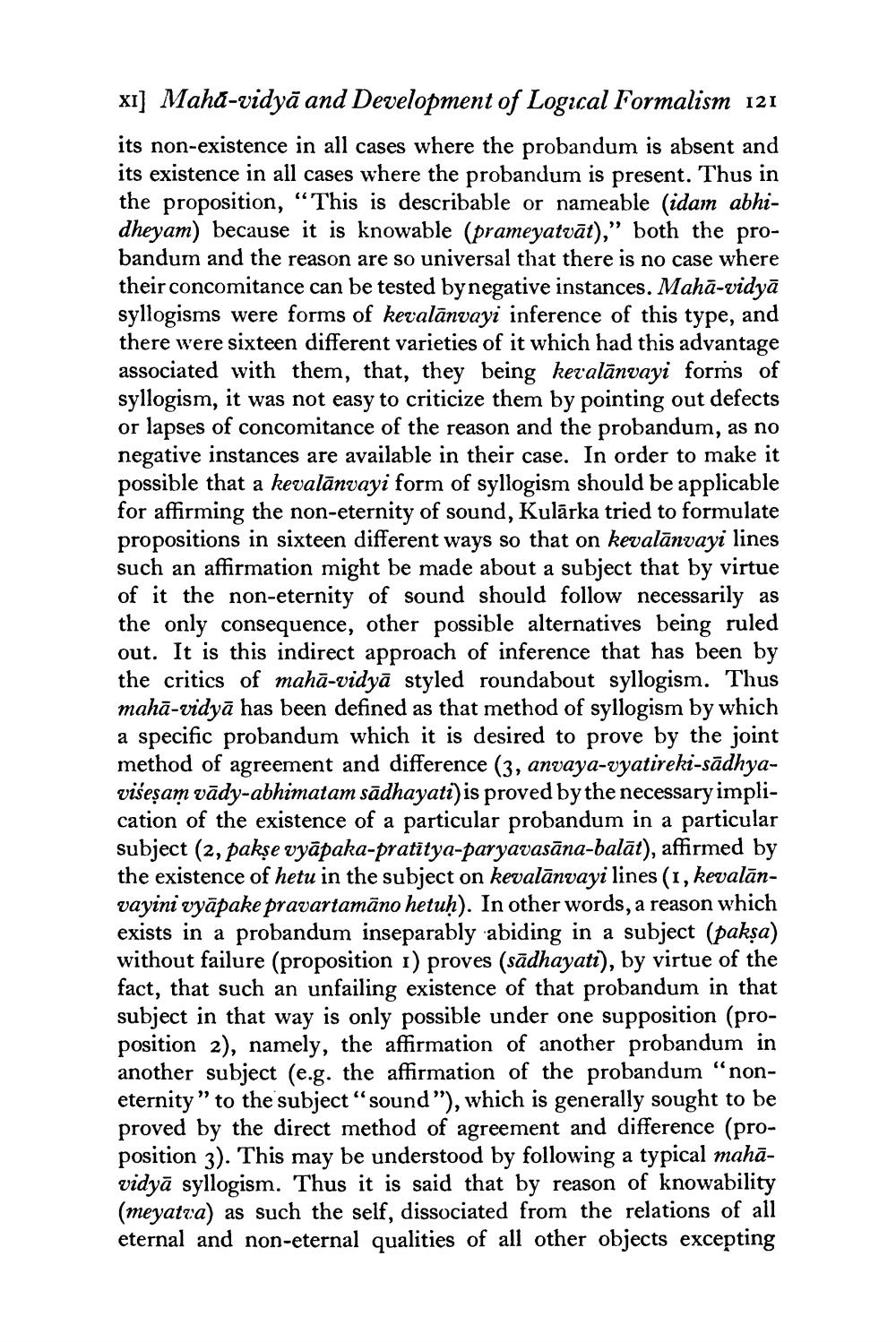________________
XI] Maha-vidyā and Development of Logical Formalism 121 its non-existence in all cases where the probandum is absent and its existence in all cases where the probandum is present. Thus in the proposition, “This is describable or nameable (idam abhidheyam) because it is knowable (prameyatvāt)," both the probandum and the reason are so universal that there is no case where their concomitance can be tested by negative instances. Mahā-vidyā syllogisms were forms of kevalānvayi inference of this type, and there were sixteen different varieties of it which had this advantage associated with them, that, they being keralānvayi forms of syllogism, it was not easy to criticize them by pointing out defects or lapses of concomitance of the reason and the probandum, as no negative instances are available in their case. In order to make it possible that a kevalānvayi form of syllogism should be applicable for affirming the non-eternity of sound, Kulārka tried to formulate propositions in sixteen different ways so that on kevalānvayi lines such an affirmation might be made about a subject that by virtue of it the non-eternity of sound should follow necessarily as the only consequence, other possible alternatives being ruled out. It is this indirect approach of inference that has been by the critics of mahā-vidyā styled roundabout syllogism. Thus mahā-vidyā has been defined as that method of syllogism by which a specific probandum which it is desired to prove by the joint method of agreement and difference (3, anvaya-vyatireki-sādhyavišeşam vādy-abhimatam sādhayati)is proved by the necessary implication of the existence of a particular probandum in a particular subject (2, pakşe vyāpaka-pratītya-paryavasāna-balāt), affirmed by the existence of hetu in the subject on kevalānvayi lines (1, kevalānvayini vyāpake pravartamāno hetuḥ). In other words, a reason which exists in a probandum inseparably abiding in a subject (pakşa) without failure (proposition 1) proves (sādhayati), by virtue of the fact, that such an unfailing existence of that probandum in that subject in that way is only possible under one supposition (proposition 2), namely, the affirmation of another probandum in another subject (e.g. the affirmation of the probandum “noneternity" to the subject“sound”), which is generally sought to be proved by the direct method of agreement and difference (proposition 3). This may be understood by following a typical mahāvidyā syllogism. Thus it is said that by reason of knowability (meyatva) as such the self, dissociated from the relations of all eternal and non-eternal qualities of all other objects excepting




